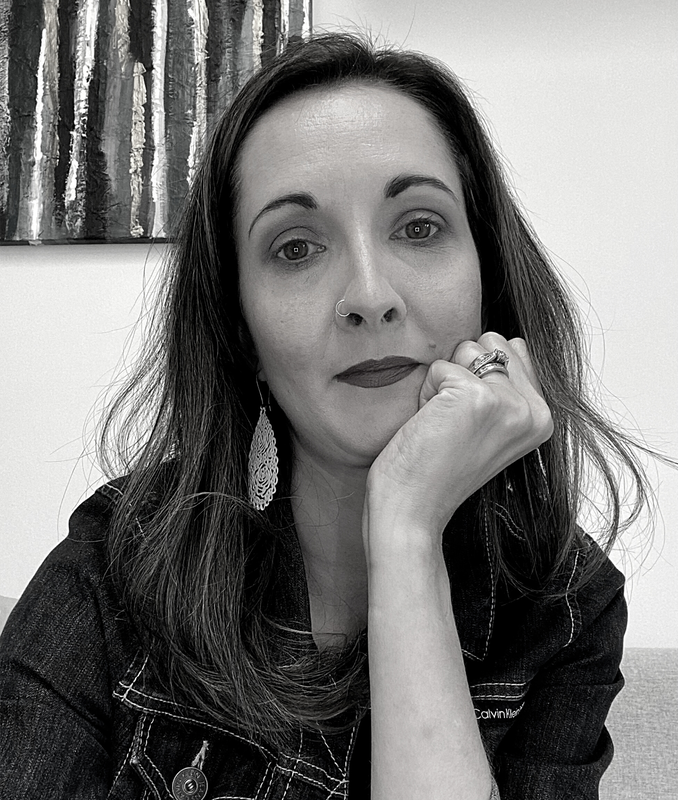|
So many families plan on breastfeeding before baby is even born. Initiation rates are 90%+ in hospitals but our stats show this drops off very quickly...less than 60% of mothers are meeting their own goals. A lot of people figure breastfeeding won't be too difficult or that they will just try and see how it goes. Many learn quickly that breastfeeding comes with lots of unexpected questions, confusion and lack of knowing what possible solutions are. When mothers find out they could have taken a class, they state how beneficial it would have been to receive some knowledge during pregnancy and know where to get guidance when they need it.  Taking a breastfeeding class with an International Board Certified Lactation Consultant (IBCLC) could help prevent many of the problems that mothers experience early on. A class will highlight common concerns and give you solutions to implement right away. You can also have the opportunity to ask questions that are individual to you. It also helps you establish a relationship with an IBCLC so you can feel more confident calling for help at the first signs of trouble. You will also learn about unique hospital policies and procedures. Taking a breastfeeding class should leave expecting parents feeling calm & confident about newborn baby behaviours and what to expect after baby is born and during their hospital stay. The topics covered in a breastfeeding class should include special circumstances, so if things with the birth do not go as expected, the parents are prepared with solutions, questions to ask their care providers and be informed about their options. They will also be informed about medical issues and an anatomical concerns that might have an impact on breastfeeding.
If there were previous breastfeeding problems in the past, it can be useful to take a class to help identify possible problem areas and make a plan of action for the next baby in case those issues (or others) come up again. I know so many times people say "why didn't anyone tell me". We are hear, ready to dish on it all! Really, are we ever prepared enough? Building your knowledge base and support team before you embark on your breastfeeding experience can make the whole thing a much different experience. I teach the majority of these classes at The Hive Wellness Studio. Topics always covered in the class are: Importance of breastfeeding Tips to successful breastfeeding How breastfeeding works Positions, breast crawl, attachment Hunger cues Intake, output Challenges & solutions and amore... Each registration include a breastfeeding booklet and is for one expecting parent and one support person. Register for a breastfeeding class now! Canadian Pediatric Society no longer recommends this practice from the late 1800's (it is now 2017)9/6/2017 What is that eye ointment babies get after birth and why do they get it? It is erythromycin and it is for prevention of severe eye infections in newborn babies. This routine practice has become outdated and no longer recommended. This might be a topic you would like to have a conversation with your care provider about. Neonatal ophthalmia (NO) is a relatively common infant illness & is defined as conjunctivitis occurring within the first four weeks of life. This term originated from cases caused by N gonorrhoea, but the term now currently refers to any conjunctivitis in this age group. In most instances, neonatal ophthalmia is a mild illness and can easily be treated case by case once infectious conjunctivitis is determined & distinguished from eye discharge secondary to blocked tear ducts and from conjunctivitis due to exposure to some kind of irritants or chemicals. The exception to this is ophthalmia due to infection with N gonorrhoea. Those cases are quite dangerous for infants. Historically, the purpose of prophylaxis treatment with Silver Nitrate at birth was for neonatal ophthalmia eye infections due to N gonorrhoea. But when I say historically, I mean the late 1800's!
A lot has changed in Canada since then and the Canadian Pediatric Society is no longer recommending routine prophylaxis for neonatal ophthalmia. The primary reason is that N. gonorrhoea strains isolated in Canada are showing considerable resistance to the treatments routinely used and there are no recent studies of the efficacy of ophthalmia prophylaxis with these treatments. You can see the position statement, complete recommendations from the CPS and the history of NO, risk factors & legal considerations depending on where in Canada you live on the Canadian Paediatric Society website. Mary Poppins has quite the bag and all things considered it could make a fairly decent doula bag! There are a few items I would leave out of my doula bag, if I was Mary Poppins. The first one would be her coat rack. I am quite certain I can find a place for my coat at the hospital or a clients home. I can probably do without a plant, but hey, if you want a plant in your hospital room to make it a little more homelike, you can bring one…I won’t complain. Although, keep in mind, you might get some flowers gifted to you after you deliver your baby. Mary Poppins even brought her own lights. Lights are important, but again, I am not worried about the lighting at the hospital or your home. Even if you want dim lights, the doctors and midwives have flashlights - yes, they do! Speaking of lights, some people like to have some flameless candles to create a nice ambience. I do have some in my doula bag, but as an FYI, they are a few dollars at the $1 Store.  I, just like Mary Poppins, have in my doula bag. A nice pair of dedicated runners for the hospital are in my bag. Mary Poppins has a mirror in her bag and I sure could use a mirror in my bag. It would be perfect for that moment the baby is crowning and a mother wants to look. Hold on, wait, that hasn’t happened. I have yet to have a mother giving birth who wants to see…. Now, of course, I know some moms would want to but in my experience it is not super common. Again, if that is something you think you might want to try in your birth, lets chat about it and make a plan about who should bring the mirror, just like the plant. That tape measure Mary Poppins has in her bag is amazing and I would love one! I mean imagine being able to measure up people I am going to work intimately with and be told all about their personality. Wow, what a benefit that would be to me and to my clients. Wait, hold on. I do often have a tape measure in my doula bag…with my knitting. Yes, I pack knitting into my doula bag. What? Why on earth would I have knitting? We can talk about that later in another blog post. Back to this tape measure idea. I don't have a tape measure that will tell me easily what your personality is, but I do however have a tool that will help me discover more about your personality and help me connect with you to make our work together easier and a little more flawless. The “Your Birth Experience” (YBE) program allows me to connect with you, identify your needs and then equip you with the resources necessary to achieve your goals. This leave mothers and their families empowered to envision their ideal birth, prepare for that birth and ultimately achieve the birth experience they desire. That’s pretty close to the magical tape measure, right? It is close enough for me. So far you now know my doula bag has a few tea lights, running shoes, knitting and a tape measure. That tape measure isn't the good personality one - that comes from our prenatal meetings. That is all I have in my doula bag? Don't I have a rebozo, massage balls, TENS machines, birth balls? Nope. I do have some gum, some cash for parking, some hair ties and some snacks. Why some simple? Largely, infection control. For real, I don't want to disinfect birth balls and I surely don't want to clients sharing “dirty” ones. I don't want to have to wash beautiful fabrics in harsh chemicals made for industrial disinfection standards. I sure can do some neat stuff with a hospital sheet that I can get at the hospital and then leave at the hospital to have cleaned properly, just like the birth balls. Massage balls and TENS machines…what can be bad there? Nothing is really bad, but I prefer to not place an object between my clients and I. I find a better connection with direct contact and that increases endorphins which are great for labour. Again, if clients know they want to try a TENS machine or like the porcupine balls, I can help them use ones that they likely already own. What I do have that cannot be packed into a bag is my years of experience and my confidence. Relief comes to my clients simply by my being present, much of the time. Clients know they can count on me to be present for them. I am a familiar face they know already and our relationship is solely focused on me helping them have a positive experience. They are presented with a bendy straw in a cup of water to juice, before they even knew they were thirsty. I am leading them to the washroom to pee and get that bladder out of the way of babies path because they didn’t realize they needed to pee. I am lightly touching and stroking their feet to remind them to relax their WHOLE body. I am that voice in their ear telling them that they can and are “doing it” when they feel like you are not being strong. The thing is, people don't give birth every day, (truth be told, I don't attend birth everyday), but I do support women giving birth more often than the average person will give birth. I have been alongside many others before. Each experience is different and no path looks the same, but they are similar enough that I can follow the flow and go alongside and help women through it. They can say things like “Is this normal?” or “what else can I do?” or “what did that nurse/doctor/midwife mean?”. I will reassure them things are normal and they are doing great, I will make suggestions about what else they might want to do, or reassure them what they are doing is perfect & I will help them understand what the care providers are doing or saying. I can help the partner and encourage them just as much (maybe more, maybe less) as I do a labouring woman. My doula bag started out full of items, and honestly, I could have taken a small suitcase on wheels to births when I first started because I felt like I needed to bring it all. I how know that to "bring it all", we need to do more work in the time before labour, and when I “bring it all” now, I am bringing our conversations, unique goals, unique desires, unique choices and my confidence, my experience and can be “tricky” just like Mary Poppins. I am confident I can pull stuff out of thin air that will help me meet your needs without carrying a lot of baggage. If you would like to explore the idea of having a doula support you during your birth, I would love to hear from you. Newborn babies are dirty business and believe it or not that white substance on newborn babies is good for them and shouldn’t be washed away! Here are 15 things you might not already know about vernix:
I think we can agree vernix is pretty amazing. What is a Lactation Consultant, LC, IBCLC? The term lactation consultant or LC has become the known, accepted title for a professionals with expert knowledge in breastfeeding. They may work with moms and babies to address breastfeeding issues and concerns. They may also teach classes, assist with establishing breastfeeding one on one, and promote and protect breastfeeding through policy, procedure within health care and government. Origin of the term “Lactation Consultant The accepted term for “IBCLC” or International Board Certified Lactation Consultant in many geographical areas is "LC" or Lactation Consultant because, as you can see, that term is a mouthful. “LC” is not trademarked and does not hold the professional standard like “IBCLC” does, so one will occasionally find a practicing LC who is not an IBCLC. Consumers (mothers and families) and other professionals (doulas and doctors) need to be aware of this. As well, not all those who work as “lactation consultants” in health centres or breastfeeding support centres are IBCLCs. Some employers encourage employees to pursue the credential but don’t mandate it for employment. Many times, nurses with some basic breastfeeding education fill these jobs. Why is this IBC part so important? The International Board of Lactation Consultant Examiners (IBCLE) awards the title of International Board Certified Lactation Consultant to only the candidates who meet the comprehensive pathway requirements and pass an international exam. This allows IBLCE to establish the highest standards in lactation and breastfeeding care worldwide and to certify only the individuals who meet these standards.  Breastfeeding education, support, clinical management Breastfeeding education, support, clinical management Breastfeeding alphabet soup I’d like to explain some of the breastfeeding alphabet soup by using the birthing support alphabet soup, as people seem to relate to that. All the roles are important, but they provide their own distinct scope, responsibilities, and abilities. They can all work together to provide comprehensive support. Primary roles of the individual bodies As you can see, I’ve broken this down into three primary roles. 1. Education 2. Support 3. Clinical management Education Educators teach you about the normal and expected processes of childbirth and breastfeeding. They typically call themselves childbirth educators and lactation educators. They teach the normal process of birth and what you can expect when having a baby, as well as encourage and promote breastfeeding. This information helps you make decisions, helps you know if you are on track, gives you references for getting the birth and breastfeeding relationships you want, and helps answer your questions. Educators typically teach community classes in group settings. Support Support people are typically those who have additional training in supporting mother, baby, and family during crucial times: birth and breastfeeding. They’re typically doulas and La Leche League (LLL) leaders. Doulas are usually paid professionals, and LLL is a mother-to-mother peer support group. These roles offer the encouragement and motivation you need to get through the processes of birth and breastfeeding. They are well versed in normal and expected outcomes. They know to watch for red flags to ensure they can guide you further if you have come outside the normal, expected process. Their job is to provide physical and emotional support, encouraging you to ask questions of your caregivers to make sure you’re well informed about what occurs. They have resources and guidelines to reassure you that you’re indeed in the realm of normal, and if things deviate from normal, they can point you in the direction of more resources. Clinical management Lastly, we have the clinical management professionals. These are the folks responsible for the clinical and medical bits of the scenario. They look at the facts and figures, big picture, and red flags to rule in or out the things that are not in the normal and expected category and then make management plans from there. They have the clinical experience of things that fall outside normal and how to manage them. Working together All of these people have a place in the realm of support and caregiving; what’s important is they know their role and responsibility and respect the others’. Where it becomes problematic is when the client receives something different from what she expected to receive. Sometimes, this occurs because the roles of each provider isn’t clear to her, and she might conclude that one person isn’t performing a role properly. Let’s look at how this might apply to IBCLCs specifically. In our example, a mother assumes that a breastfeeding educator* is an IBCLC. She notices that despite consulting with the helper, her breastfeeding issue remains unresolved. She decides to seek more help through a La Leche League leader, who determines that the issue is outside her scope and recommends an IBCLC. The mother insists that she already saw an IBCLC, but received no help. *this person could also be staff at a breastfeeding clinic or nurse who comes to her home This example is typical, and it hurts all support people. The educator gets a bad rep because she didn’t help. The LLL leader is helpless because the needs were outside her scope. The IBCLC profession gets a bad rep because the client misunderstood the different roles and expectations. Clients need to know clearly what their expectations are and who can best meet those expectations based on role, scope, and experience. I want to be asked and welcome being asked these questions! I want you to go and look at the IBLCE website to see what IBCLC's are all about and verify I am indeed and IBCLC and see what scope and standards are laid in place for my profession. I welcome the same questions about being a doula! I would love to see a blog about midwives and how they are different from doulas and childbirth educators (wink, wink, nudge, nudge midwives). All breastfeeding and lactation professionals have a responsibility to work together to ensure mothers have accurate information, so they can receive the support and encouragement they need as efficiently and as quickly as possible. 1. You do not know what a doula is. It is said that less than 6% of mothers use a doula for their births. That could be because many people have no idea what a doula is. It can also be that there are misconceptions of what a doula is and what a doula does. Doulas are certainly not new and there are many stories of how doulas originated. A modern day doula is known as a non-medical support person for pregnancy, birth and postpartum (the time after the baby is born). A doula can be a source of encouragement, empowerment or simply a coach to the birthing person and their partner. Modern day doulas work professionally, confidently and comfortably alongside medical care providers such as doctors, midwives and nurses. A doula is a constant in the process. They meet with people during pregnancy and remain into the postpartum period. In a system where care providers rotate and work in shifts, there is often change in who is looking after a birthing woman, as labour can take more than one shift, maybe two (sorry, maybe more). Feeling safe and secure can be difficult around strangers and often the time is not there to develop relationships with the care providers. A doula can help keep feelings of safety and security by being a previously known relationship and remaining as a constant. With that in place, a doula can help bridge relationships with the changing staff to make the transition easier on the labouring woman. 2. You are worried a doula will not allow you to make your own decisions about your birth. Now that we know a bit more about what a doula does, one might wonder if they will tell people what to do for their births…the good news is doulas should be unbiased in their support of individuals. A doula might have particular views on how she would have a baby, but that should not be projected onto a family. I am supportive of all kinds of births. I want people to aware of what their choices are. Did you know people have choices in pregnancy, labour and birth? 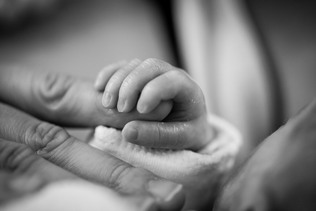 I want it known that the birthing women are the ones that make decisions for their birth. Birth does not need to be an event that happens to women; it is an event that women should be an active participant in. Once people know the options, I respect their ability to make a choice that works for them. If people do not know how to find out their options, I help people communicate with their care providers in a positive manner so they can be presented with all the options and ask questions they need to ask to be full informed. 3. You are having a caesarean section.
A caesarean section is no less of a birth than any other birth. A doula can help prepare expecting families for the upcoming birth. They can help you formulate questions you might have for your care provider. They can help you prepare for what the procedures & processes of the day may be. They can even help you plan a birth plan for the day. Even with a scheduled caesarean birth there are still options and a birth plan is an ideal way to communicate those choices. While waiting for the birth a doula can help ease parents mind and help them prepare emotionally for the birth as they would during a labour setting. There are uncomfortable moments preparing for a caesarean, like an IV or epidural, and doulas help support parents through those moments. Inside the operating room, a doula can provide details that parents would like to know about. The doctors and nurses are busy with taking care of mother and baby. The partner is awaiting the baby and may feel uneasy in the hospital setting. Doulas are there to support partners as well. If the baby has to go to another area of the hospital, the partner can follow along with baby, and the doula will remain with the mother. This is reassuring to both new parents. Mothers do not need to be alone at all during a caesarean. Doulas also help in the postpartum period such as breastfeeding and making sure the mothers is comfortable and doing as well as she can be after the birth. 4. You have a midwife As I said above, modern day doulas work professionally, confidently and comfortably alongside medical care providers. Midwives and doulas are a complement to each other. Midwives are experts in pregnancy and birth and the most compassionate people who provide amazing support to families. However, they have the primary responsibility to be clinicians which is quite different from a doula. They have a lot of things to set up, monitor, chart, etc and often have to take off the unbiased support hat they wear and move into more of a decision making role or give an opinion as to what they feel is best and safest for mother and baby. They might even have to be taking care of more than one family at a time. If things are calmer and quiet, sometimes midwives leave to go and rest/sleep while a woman is labouring, so she can be rested and in her best mind and ability for the birth. Having a doula there means mothers is continuing to receive emotional and physically comfort. 5. You don’t need one You are giving birth to the baby, and that is one fact we cannot change, but the experience of birth often includes another person - the partner. Sometimes the partner is who needs that constant support and encouragement. I have been invited back to be a repeat doula for families I have served previously, not because the mother feels she needs a doula, but because the partner did not want to go through the process without a doula. Sometimes as a doula, providing support and encouragement to the partner, means the partner is who shines in the mothers eyes as her primary support person. That is wonderful! I love when that happens as birth should belong to that couple. And, maybe, truly, neither person needs a doula. I do not believe doulas are needed at births…you know, those babies are coming out at some point regardless of who is at the birth. Doulas are not a must have, doulas are an added extra. Doulas are a must have for some people, but not all people, and I support that decision. If you would like more info on the doula services I provide, I have more information readily available for you. Are you looking for a doula? Did you pull up the list of interview questions Was the first one "What is your birth philosophy?" Let me answer that for you. MY PHILOSOPHY Doulas have ideas about birth philosophy, but those should be reserved for their own births. As an experienced doula my philosophy has changed and it ebbs and flows with each birth. My job as a doula is to support your birth, your wishes and desires. That looks different for every client. Some overlap and that’s ok, but each birth is as unique as you are. 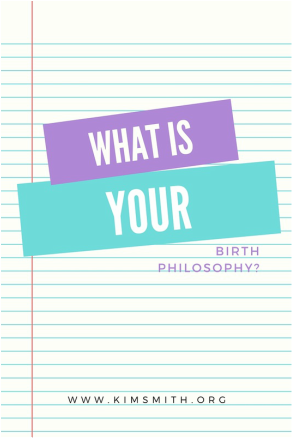 I want you to be less concerned with my own birth philosophy and more concerned with how I connect with you, how I identify your needs and how I plan to equip you to meet those needs or how I can help meet those needs. WHAT IS YOUR PHILOSOPHY? I have a system in place to get to the heart of your birth experience. It is not an automated system, because you are as human as I am, but it is a system that is fluid. It helps you and I understand your personality style and now that affects your birth, as well as understanding how you make medical decisions. Yes, we all differ in that, too! It is a way to share and connect with your partner about each others wishes in a unique, fun way. I want to know about YOU. What I did in my own births should have no bearing on your births. What is YOUR birth philosophy? If you would like to tell me about what is important to you at the birth of your baby & get help with learning how to meet your goals, lets get together and chat! 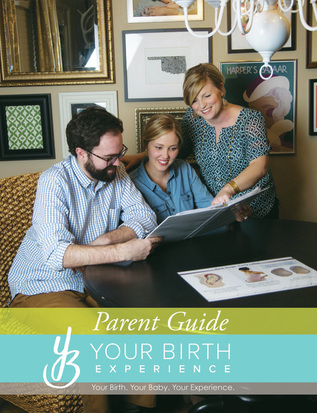 Birth preparation is important! However, you do not need to become a birth expert to give birth. What I mean is, you do not need to commit weeks and weeks and a large number of hours to a prenatal class in order to have a baby. What if I told you could attend a 5 hour childbirth class? Yes, simply FIVE hours. There will be some homework, but I believe you are capable of doing this all on your own time. You will get from the homework what you put into the homework! I am there to help you with the homework, too. Your Birth Experience is designed to connect YOU with all your childbirth options in a unique way. You won’t find a program like this anywhere else. It is comprehensive yet personalized to you. In Your Birth Experience, there is CONNECTION to each expecting family, IDENTIFICATION of their individual needs, resulting in families being EQUIPPED to achieve their unique birth experience. Everyone receives a copy of the YBE parent guide, complete with colouring pages. Yes, colouring pages. Colouring is a great activity in pregnancy & labour. You will learn evidence based information on the process of childbirth and potential interventions. You will envision your ideal birth experience and be provided with the tools that you need to make that happen. Note, that it is YOUR ideal birth experience, not mine, or anyone else’s. You will learn labor comfort measures & relaxation techniques and we will practice them. You will explore and discover your unique personality styles, how you tend to make decisions & how this affects communication.Communication is very important in labour and birth. You will be able to create a birth plan that effectively communicates your desires to your birth team. This helps you create the best environment for you and your birth team for your own unique birth experience. We will also begin our entrance into the world of breastfeeding in this class. I say begin because there is a more in-depth breastfeeding class that is available. I have them broken into separate classes for a couple reasons - to help make more breastfeeding classes accessible to people taking other childbirth classes & your time commitment, you can break up learning sessions. What won’t you find in this class? Videos of women giving birth. You are saying, “What? No videos? Why not?” I can tell you, that as a birthing woman, you will NOT be seeing or feeling birth from the angle or perspective that you will see in the video, so it might not be of any value. Another big reason is most of the support people we bring to classes with us do not want to watch birth, and also, may not be experiencing birth from that angle of perspective either. They are uncomfortable watching videos in a group setting and to be fair and honest, do not digest the content because they are distracted by the discomfort. Birth is a right brained activity, meaning we don't need to see birth to give birth. And another big reason, YouTube is full of birth videos. If you feel birth videos are important to watch, you have hundreds and hundreds available to you. You don't need me to facilitate viewings. We do, however, watch a video about breastfeeding. Breastfeeding is also a right brained activity however does have a left brained component to it, so it is helpful to see breastfeeding when preparing to breastfed. You also will not hear about all the complications of pregnancy and/or birth. This is important for a few reasons. 1) I don't want to scare you. We will talk about fear in the class and how fear inhibits labour. 2) If you do have a unique concern in your pregnancy or birth, that is where your trusted care providers are your best resource, not your childbirth educator. I am a resource for you, for sure, but we do not need to discuss ALL the possible concerns, in order to understand the one or two you might be having. 3) Back to the communication I mentioned earlier in this post. I will help you to be able to communicate with your care provider so that you have all the info about your unique concerns. That is important. 4) There is info in the YBE Parent's Guide about possible complications and interventions, so you do have information. We just do not spend lots of time in the class because it doesn't universally apply to all. I invite you to the next session of this class and am excited to help you prepare for Your Birth Experience. This class can also be done in your own home, one-on-one, if you prefer that option. Simply contact me to set that up! I might hear “I want to be a doula” as often as I hear “I want to be a knitter”. I am both a knitter and a doula in Regina and I think the two acts have quite a bit in common. Some people are just born to doula and some people are just born to knit. Others need to be taught. They will say, “I want to learn to be a doula” or “I want to learn to knit”. Guess what? Depending on where you live, there is relatively easy access to trainings and teaching for both. I have taken both doula training and knitting classes. This is why I think knitting is like doula’ing. Knitting classes are relatively short. They are meant to teach you basics and get you going, some even construct one particular item, like a hat or a shawl. At the end of the class you have learnt some basic knitting steps and completed a simple item. Doula training is also short & teaches you the basics of birth, some coping strategies and some ideas for your clients; mostly with one type of birth in mind, unmedicated vaginal birth. Quite a number of people enrol in doula training but can’t seem to get themselves off the ground and into the role as a doula at birth. They might be able to attend a birth or two of friends or family, maybe an acquaintance. After those initial "hot" leads, it isn't so easy to get much more opportunity or experience. Many struggle getting paid for the work they are doing & the time they are committing to. Lots of people take knitting classes, but never pick up their needles after the initial items made in a group setting are done. Now, I know most people don't learn to knit so they can make a profit, but if they did they are hard pressed to get people to pay them for their time knitting. Both knitters and doulas get stuck here. 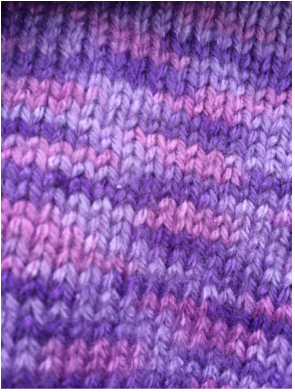 You took a class or a training. Now what? What happens if you want to make another knitted item after knitting class? You likely need to read and perform a pattern that is entirely new to you. You need to evaluate if you have the skills to perform that pattern. If you can do it, that is fabulous, off you go knitting. If you don’t have the skills, you have to obtain them somehow. Or alternatively, you have to pass up the project. What happens if a new doula meets a situation she didn’t come across in doula training? She also has to evaluate if she has the skills to navigate the situation. If she does, she moves along supporting the family. If she doesn’t she will need to obtain them. Or refer to someone else. Sometimes neither happens and both the doula and the client are stuck. Potential knitting projects are unlimited, just as much so as the different kinds of births a doula will witness. To be honest, I feel a weekend of training or a few hours of knitting with a skilled instructor is not enough to prepare us for everything we might desire to knit or might see and need to support our client through as a doula. We need to understand our limitations of knitting skills just as much as a limitations to our doula capacity. Doula’ing also gets treated like a hobby, as knitting would be considered. I think there are a few reasons for this. If we were doing doula “right” then we wouldn't be churning over doulas like butter, because sometimes this is how it feels. We see many new doulas trained every year and very few stay practicing year to year, and we lose just as many "old" ones in the next 2-3 years from when they trained. We really have no more doulas now than we did 7 years ago when I trained, we haven't changed anything in the community to enhance birth & increase the desire to have a doula. It is treated like a hobby which does nothing to enhance our professionalism or create a bigger interest in doula to the larger community. There are many reasons why this is, but compare it to knitting again. In order to advance my skill to different projects outside the knitting class I took, I needed more support to continue growing my skills, and I had to seek that out after the class, sometimes in the middle of a project & sometimes before I started a new one. The reality is that many people in my knitting class set the needles down and never returned to knitting after the initial projects because they didn’t know how to get more skills, didn’t know who or where to turn to, or didn’t have the resources (time, money, etc) to do so. How to convert being a doula from a hobby to a business? If people want to move from hobbyist doula to business doula there is also a huge amount of skills needed to be able to this, too. Again, some people come to those skills naturally, some have to learn it and others frankly pay someone to handle business stuff for them. But lots of what we need to do to move from hobbyist to business doula is looking at how we are "doing" doula, what skills we need to improve upon and how to get good client outcomes. Birth is unpredictable - that is the only sure thing about birth. But that doesn’t mean birth just happens to people and they should just roll with what may be. Birth can be a positive experience for everyone. It is time to doula differently. I am up for the challenge to connect to my clients, identify their needs & equip them with the tools they need to meet those needs because Your Birth Experience matters. Just like learning to knit more than basics by advancing my knitting skills and performing the same stitches over and over until I got the beautiful outcome I wanted consistently, I have advanced my doula skills to do similar steps and processes with clients to make sure I understand my clients needs, I am able to perform the necessary steps to meet those needs and consistently get good client outcomes. This isn't to say people and birth are processes and a systems, because I do not believe this is the case, I believe all people are births are unique. Rather what I am saying is that by using systems and processes, I can get to know people and their desires for their unique birth experience. If you would like to chat about your desires for your birth, consider booking a complimentary consult. YOUR BIRTH, YOUR BABY, YOUR EXPERIENCE
Your Birth Experience is designed to connect YOU with all your childbirth options in a unique way. You won’t find a program like this anywhere else. It is comprehensive yet personalized to you. In Your Birth Experience, there is CONNECTION to each expecting family, IDENTIFICATION of their individual needs, resulting in families being EQUIPPED to achieve their unique birth experience. As I am sure you are finding, pregnancy is a busy time, and most of us already lead full busy lives. Trying to get to 6-12 weeks worth of classes can be a challenge, or simply put, undesirable to many people. Some people don't like large classes, don't have the attention span for hours and hours of lectures and videos. Some people like intimate groups where they already know or can get to know other people. I am pleased to offer Your Birth Experience, for all those reasons, and more. I am also happy to offer the program in a variety of formats based on individuals needs and desires. In group classes, set for 2 hours each over the span of 3 classes (can also be offered in a one day format). I also offer, 5 hour private classes, which can be scheduled in one or two sessions. These would take place in your home & can be scheduled when it works best for YOU! All of the options include:
Your Birth Experience Class is $225 & includes the Your Birth Experience Parent Guide. Your Birth Experience Parent Guide is available book to work through on your own. $65 For more information see Your Birth Experience. The idea of Doula’s are based upon old, old history. Old birthing history has so many stories of women with women, supporting and uplifting, during birth. In today’s birthing world many things have changed from the past. Change is good, but can also lead to having good things getting lost in translation. Having solid support for the body & mind throughout birth is one of the things that was getting lost, but in recent years more and more women are choosing to hire a doula.
“Doula” means “Woman servant" or “caregiving" and we adopted it from Ancient Greek language. “Doula” has now come to mean someone who provides emotional, physical and informational support. Doulas nurture a woman and her partner throughout the birthing process and afterwards. Doulas learn the desires and wishes of the expecting mother and partner and help them meet their goals. If the goals need to change a doula helps facilitate the unexpected changes. Doulas do not only attend home births - they attend all births. Doulas do not only attend water births - they attend to mothers wherever mother is comfortable. Doulas are still vital when a woman has a midwife - they are not the same, they are complimentary. Doulas do not replace the father or the support persons - they add an additional layer of support and help support the father and support persons. What can you expect from a doula? You can expect they will help you prepare and educate yourself for the birth. You can expect they support your wishes for the birth. You can expect them to be with you for the whole of the birth process from the time you need them. You can expect them to listen to you and be compassionate to your emotional vulnerability. You can expect they will hold a safe and protected space for you. You can expect no judgement. You can expect they will hold you up. You can expect they will take your lead. You can expect they will lead you when you don't know where you should be headed. You can expect them to make your physical comfort priority. You can expect them to make your emotional health priority. What you can expect your doula NOT to do: • Doulas cannot do medical exams, tasks, diagnose conditions or deliver babies. Doulas are NOT medical professionals. The evidence for doulas show* ▪ 50% reduction in cesarean rate ▪ 25% shorter labor ▪ 60% reduction in epidural requests ▪ 30% reduction in pain medication use ▪ 40% reduction in forceps delivery ▪ 40% reduction in oxytocin (pitocin) use *Stats from “Mothering the Mother” by and Marshall Klaus, John Kennell & Phyllis Klaus. Choosing a doula can seem to be a difficult task, but keep in mind there is a doula out there for everyone. |
Kim Smith
|
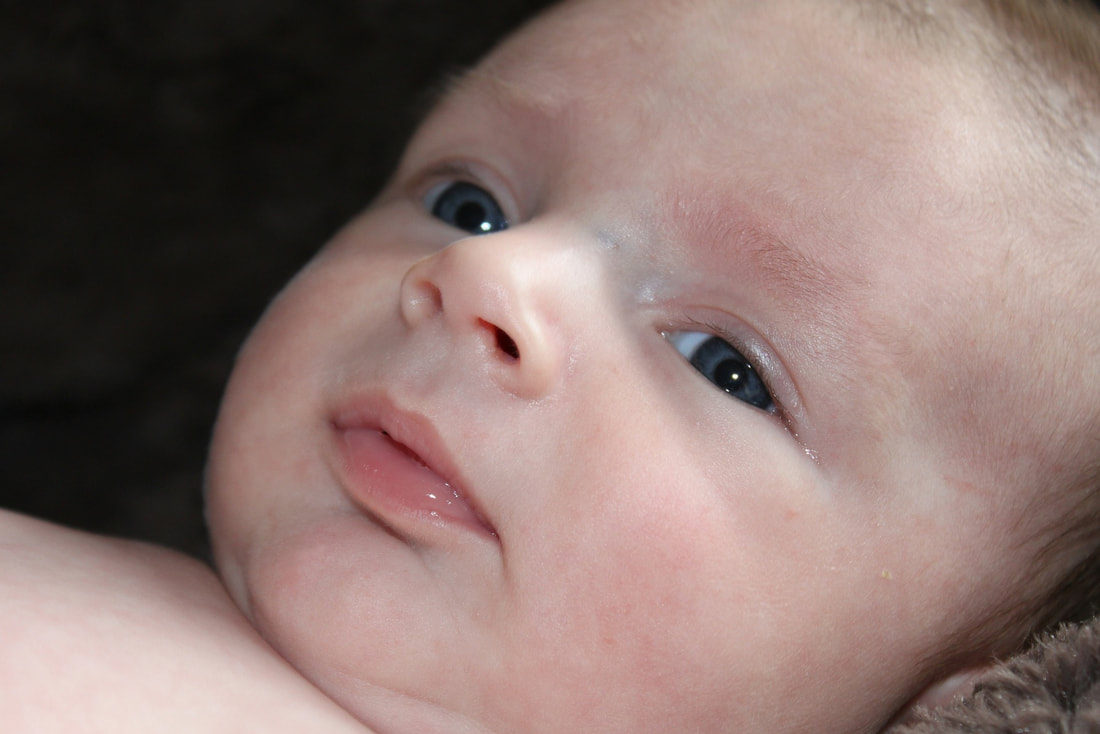
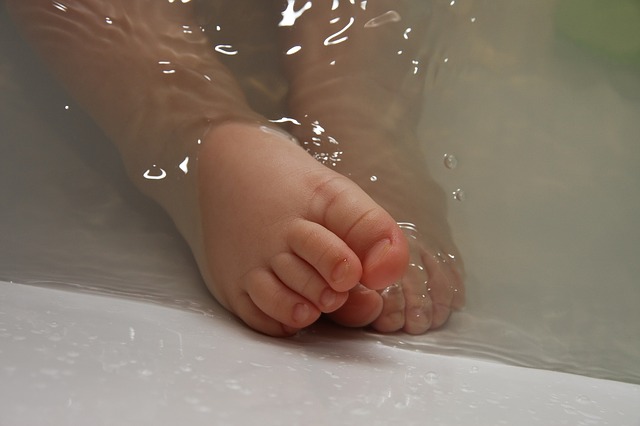
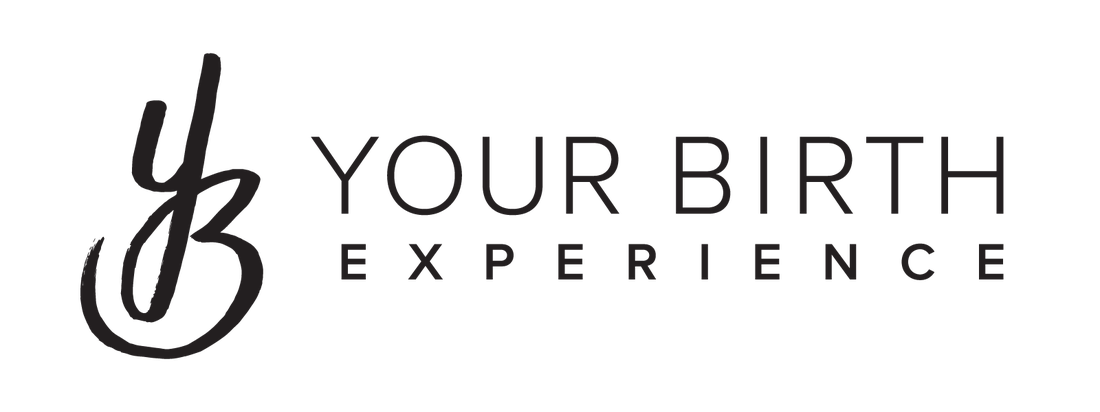
 RSS Feed
RSS Feed
